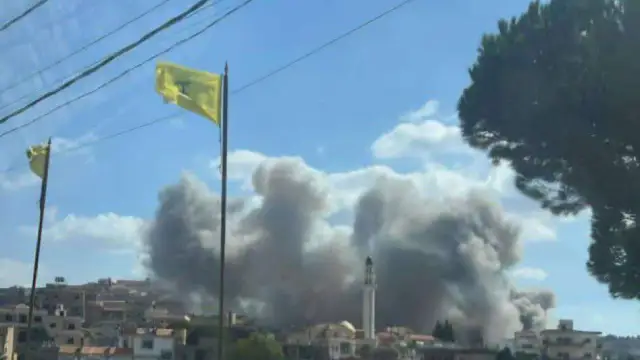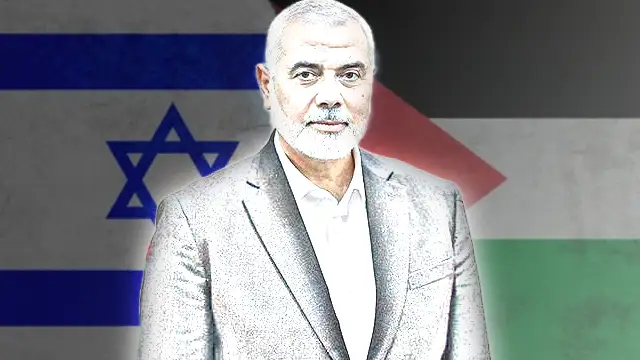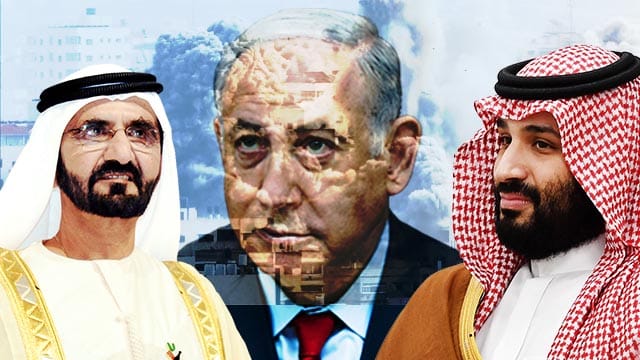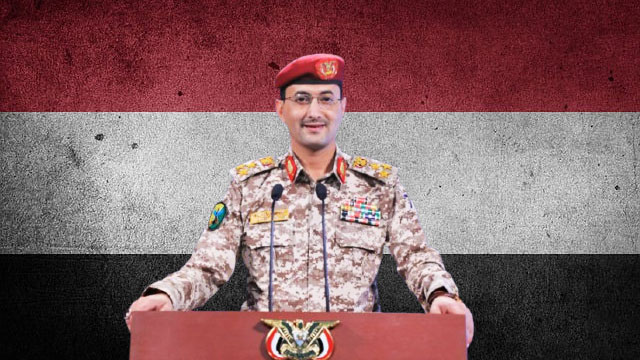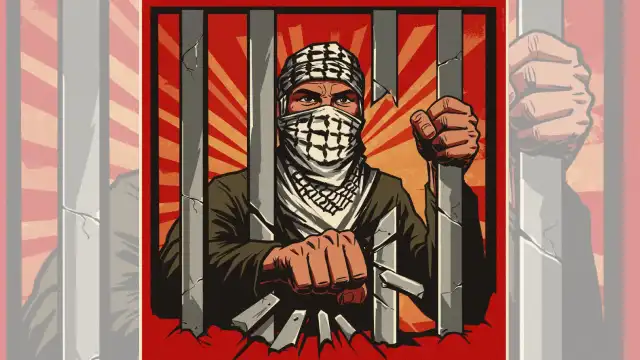The finalisation of a Gaza ceasefire deal between Palestinian resistance Hamas and Israeli occupation forces in Qatar has provided a ray of hope to conflict-ridden West Asia. However, clouds of uncertainty loom over the deal’s future as the Israeli government faces challenges in getting it ratified by a majority of its legislators.
Iran hails the deal as a “defeat” for Israel, and the Zionists are divided. Far-right National Security Minister Itamar Ben Gvir’s Otzma Yehudit and Bezalel Smotrich’s Religious Zionism party threaten to withdraw from the cabinet if Prime Minister Benjamin Netanyahu goes ahead with the deal. Thus, it seems the deal faces many challenges from Tel Aviv’s ruling clique.
However, while the Palestinians eagerly await the fate of the Gaza ceasefire deal, there seems to be no end to the ordeal. The Palestinian Health Ministry in Gaza reported 81 deaths and 188 injuries from Israeli airstrikes and shelling since Wednesday, January 15th. Gaza’s Civil Defence said 21 children and 25 women were among the dead, many killed after the deal’s announcement on Wednesday. Israeli warplanes struck central and southern Gaza, including residential areas in al-Draj and Sheikh Radwan in Gaza City.
Roadblocks to implementing the Gaza ceasefire deal
Although a Gaza ceasefire deal, based on hostage exchange on both sides, has been on demand since October 2023, when Israel began its latest phase of aggression targeting the entrapped strip, killing 46,788 Palestinian civilians, including 13,340 children so far, the deal agreed upon in Qatar happened due to a frantic push from the outgoing US President Joe Biden’s administration at the last hour to score brownies before Donald Trump, the president-elect, enters the Oval Office.
While Mr Biden continued to fund Israel throughout the 15-month-long aggression on Gaza and provided it with weapons used in what has been labelled as a “genocide” by the Global South, his administration made a swift push for a ceasefire and hostage exchange between Palestinian resistance and the Zionist forces to ensure that Mr Trump doesn’t get credit for brokering peace in the region, which would create immense future problems for the Democrats who want to harp on Arab-American voters in the long-run after facing a recent election drubbing, for which many blame Mr Biden’s hawkish foreign policy.
Netanyahu’s political gambit and the ceasefire
Agreeing to the Gaza ceasefire deal after continuously bombing the strip for over 15 months wasn’t easy for Mr Netanyahu. Even though he faced snubbing at home and abroad, as the demand for a ceasefire became stronger and more prominent since November 2023, his obstinate pursuit, which has been considered a genocide globally, didn’t show any sign of waning in the last 15 months.
What made Mr Netanyahu, who has been continuously shifting the goalpost of the Gaza aggression, is the pressure from the US, the principal sponsor of Israel’s military expeditions.
On the one hand, the US has found that the India-Middle East-Europe Economic Corridor (IMEC) project, which Mr Biden has jointly envisioned with Indian Prime Minister Narendra Modi as an alternative to China’s ambitious Belt-Road Initiative (BRI), has been facing extreme uncertainties due to the ongoing tensions in West Asia; on the other, the Red Sea blockade imposed by Yemen’s Houthi rebels has paralysed cargo movement through the Gulf of Aden, resulting in a steep rise in shipping costs between Asia and Europe.
These two, along with the rising cost of supporting Israel when the US-led collective West’s offensive against Russia using Ukraine has been facing setbacks, appear to have forced the White House to push for a ceasefire, if not a peace deal, to end the bloodshed.
For Israel, not accepting the Gaza ceasefire deal would mean publicly sacrificing the 98 hostages held by Hamas. At the same time, it faces the dilemma of releasing Palestinian hostages held captive by it. Mr Netanyahu knows he has nothing to gloat about after the ceasefire is implemented and the Israeli Defense Force (IDF) will have to move north.
Despite waging the war for 15 months and nearly decimating the “Axis of Resistance” from West Asia, Mr Netanyahu failed to dismantle the Hamas or other Palestinian resistance forces. Rather, the optics created major embarrassments for the Israeli state, its IDF and Mr Netanyahu’s US-based handlers.
Though the far-right, including Mr Ben Gvir and Mr Smotrich, demands that the aggression must continue, Israel can’t say no to the US as even the American Israel Public Affairs Committee (AIPAC), which is the prominent Zionist lobby that controls American politicians, including Mr Biden and Mr Trump, has supported the Gaza ceasefire deal.
“We appreciate the tireless efforts of the Biden administration to help negotiate this agreement together with Israel, and we applaud the administration and the overwhelming majority of Republicans and Democrats in Congress who have supported our democratic ally throughout this war. We also thank President-elect Trump for his forceful demands of Hamas to free the hostages and for dispatching his Middle East envoy Steve Witkoff to advance the negotiations (sic),” the AIPAC said in a statement.
It projected the Gaza ceasefire deal as a victory of the US-led Israeli regime and called it a defeat for the “Axis of Resistance” backed by Iran.
“Today’s agreement is a direct byproduct of the tremendous progress of Israel’s military operation to degrade, destroy, and isolate the Iranian terrorist proxies of Hamas and Hezbollah. America must continue to stand with Israel as it fights a just and moral battle of self-defense against Iran and its proxies (sic),” it claimed.
This means, Israel has little room left to manoeuvre as denial may mean disruption in funding from Washington, which is the key to the Zionist occupation’s existence.
Resistance reacts to the Gaza ceasefire deal
The Palestinian resistance and Iran, the hydra of the crippled “Axis of Resistance”, claimed that the Gaza ceasefire deal is a victory achieved by the people. Iran’s Supreme Leader Sayyed Ali Khamenei said that the Palestinian resistance forced Israel to retreat, in an attempt to revive the spirit of his followers, who have suffered immense setbacks in 2024.
“Today, the world realised that the Palestinian people’s patience and the Palestinian resistance’s resilience have forced the Zionist regime to retreat. It will be written in books that one day, a Zionist group massacred thousands of women and children in the most horrific way and in the end, they were defeated,” Mr Khamenei said.
Meanwhile, Yemeni Houthi rebels, who have successfully brought the West to its knees through the Red Sea blockade, have warned that Israel should religiously follow the terms of the Gaza ceasefire deal and if it violates the deal then the Houthis will strike again.
Uncertain future: Will the Gaza ceasefire deal hold?
Although there is a general sense of excitement over the ceasefire, its future looks bleak. The Gaza ceasefire deal is concluded based on compulsion. It’s fragile from the onset as neither party can trust each other. In the meantime, Israel’s attacks, blaming Hamas, continue in Gaza.
One of the major drawbacks is it gives leeway to Israel to continue the massacre at the drop of a hat. On the other hand, it imposes many restrictions on the manoeuvring capacity of the Palestinian resistance.
Even though the deal ensures that the Zionists free more Palestinian hostages against each Israeli hostage held by Hamas, there isn’t any guarantee that Tel Aviv, by brokering a deal with Mr Trump, won’t unleash another series of violence after all Israeli hostages return home.
Moreover, the Gaza ceasefire deal isn’t a permanent truce and has no provisions for justice. Even though the International Criminal Court (ICC) has issued a warrant against top Israeli officials, including Mr Netanyahu, it’s unlikely that the victims of the Gaza genocide will receive any justice anytime soon.
Rather, both camps of the US have condemned and threatened the ICC for the warrants.
In this scenario, the people of Gaza can use the opportunity to get access to aid, have their critical infrastructure rebuilt and international assistance to rebuild the demolished urban landscape. The Gaza ceasefire deal is merely a breather, a small break in the chain of massacres that epitomise the region now.
Tanmoy Ibrahim is a journalist who writes extensively on geopolitics and political economy. During his two-decade-long career, he has written extensively on the economic aspects behind the rise of the ultra-right forces and communalism in India. A life-long student of the dynamic praxis of geopolitics, he emphasises the need for a multipolar world with multilateral ties for a peaceful future for all.


